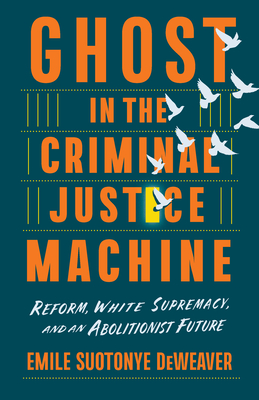
Deweaver, Emile Suotonye
Despite reform efforts that have grown in scope and intensity over the last two decades, the machine of American mass incarceration continues to flourish. In this powerful polemic, formerly incarcerated activist, essayist, and organizer Emile Suotonye DeWeaver argues that the root of the problem is white supremacy. In the same vein as James Baldwin's The Fire Next Time, DeWeaver's Ghost in the Criminal Justice Machine brilliantly combines social commentary and personal narrative. This fiery debut is an original and provocative critique of the deeply troubling racial logic behind parole boards, police unions, prison administrations, and more.
During his twenty-one years in prison, DeWeaver covertly organized to pass legislation impacting juveniles in California's criminal legal system; was a culture writer for Easy Street Magazine; and co-founded Prison Renaissance, an organization centering incarcerated voices and incarcerated leadership. DeWeaver draws on these experiences to interrogate the central premise of reform efforts, including prisoner rehabilitation programs, arguing that they demand self-abnegation, entrench white supremacy, and ignore the role of structural oppression.
With lucid, urgent prose, DeWeaver intervenes in contemporary debates on criminal justice and racial justice efforts with his eye-opening discussion of the tools we need to end white supremacy--both within and outside the carceral setting. For readers of Mariame Kaba, Susan Burton, and Derecka Purnell, Ghost in the Criminal Justice Machine adds a sharp and unique perspective to the growing discourse on racial justice, incarceration, and abolition.






